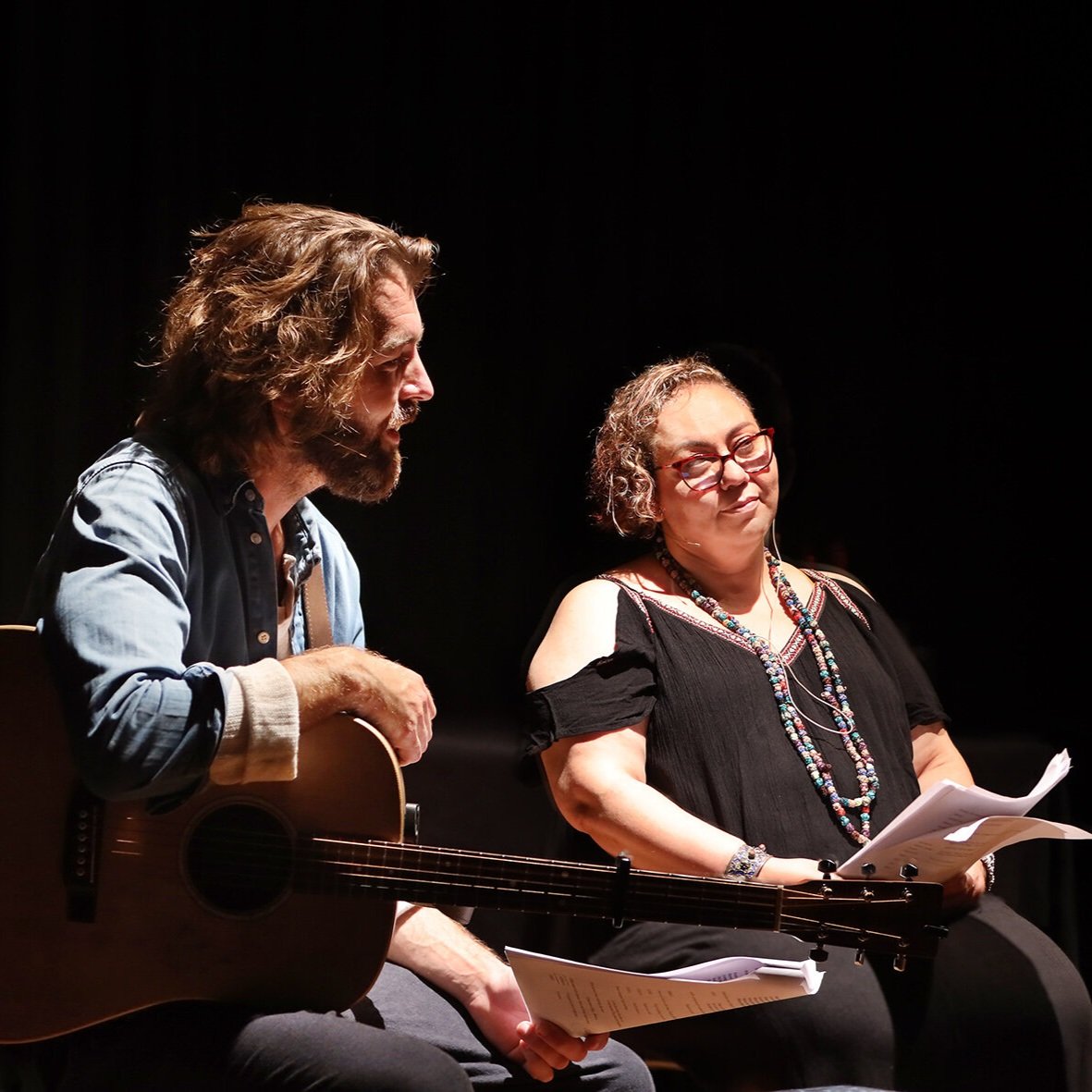Dido’s Bar and Iran
Mahsa Amini died in hospital after being arrested by Tehran’s ‘Morality Police’ for not following strict dress codes.
Mahsa Amini died on 16th September in Iran. Her horrific death occurred on our final day of rehearsals for Dido's Bar before we moved into our created space in the Royal Docks. And the ongoing protests, brutality and moments of optimism have coloured our experience over the last few weeks.
Dido’s Bar’s composer and my dear friend, Marouf Majidi, is Kurdish Iranian. Marouf fled Iran twenty years ago, in fear of his life. A teenager not much older than the other student, Nika Shahkarami, who appears to have been brutally murdered for attending the protests last week.
Marouf, ever the professional, has been spending his days and long evenings with us at Dido's Bar, playing and accompanying his beautiful music at the core of his show. But the minute he leaves the stage, his heart and all his thoughts are in Iran with his family and community.
Composer Marouf Majidi during rehearsals for Dido’s Bar. Photo credit: Ali Wright.
I should name my friend by his Kurdish name, Sirvan. Marouf is the name his family had to give the Iranian authorities when they registered his birth. A Kurdish name was forbidden.
The current protest and the brutal backlash from the authorities feels close to us, in this show.
Aeneas’ story in our version of the Aeneid in Dido’s Bar is Marouf’s story of flight from Iran. We are telling the old story through today’s eyes and ears.
Our decision to give voice and agency to the women who were voiceless and powerless in Virgil’s original story – particularly the silent Lavinia in the original poem – is important and deeply political.
And through our show and through Marouf’s music, we lend our voice to the many extraordinary women and men who are risking their lives today in Iran, to stand up to oppression and for freedom of expression.
Yesterday between shows, I drunk tea with Sirvan and we chatted about his native country. Ever the optimist, an attitude which I really believe has been the source of his survival and strength, he believes that change will come. Maybe not in these few weeks, but change is coming to Iran. Sirvan grew up behind a wall in Iran – the music and culture that made him who he is. are fundamentally different to mine. His world is rich and glorious, steeped in generations of stories and amazing music, and deeply intellectual. He read Russian classics such as War and Peace at the age of 10 but he only heard the Beatles for the first time in 15 years ago. Soviet literature was allowed in Iran. Western pop music definitely not. He’s spent the last 15 years of his time in Western Europe, encountering a century of music and culture that was behind a wall for him. BUT Sirvan tells me that this is no longer the case in Iran. The internet has broken down these walls. Young people, and it is largely young people in Iran who are protesting, are no longer living in siloes. Change is coming.
As Sirvan said to me yesterday – as we know from the Aeneid and our epic stories, Light always comes through the Darkness. And we lend all our strength to those helping it break through.
- Josephine Burton
For more information about the protests in Iran, visit this link.

















